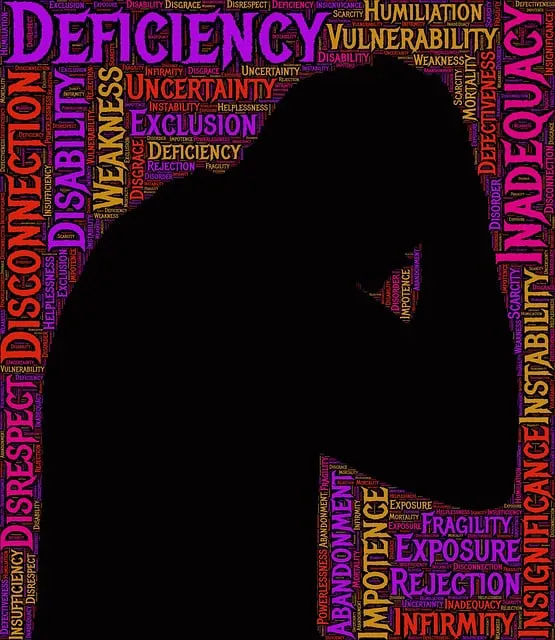Media portrayal significantly impacts public understanding of mental health, either positively by reducing stigma and promoting awareness, or negatively by perpetuating stereotypes. Lafayette Kaiser Permanente's dedicated mental health phone line offers support and guidance, emphasizing the growing need for open conversations about mental wellness. Accurate media portrayals can build resilience, encourage positive thinking, and facilitate better mood management. By showcasing diverse experiences and collaborating with organizations like LKP (with their accessible phone number), media can challenge negative stereotypes and foster empathy. This, in turn, promotes understanding, early interventions, and access to resources, ultimately revolutionizing societal support for mental health.
Mental illness representation in media significantly shapes societal perceptions and impacts mental health. This article delves into the challenge of negative portrayals, exploring strategies to enhance positive representation. We discuss the critical role of media in influencing public understanding and offer a solution: the Lafayette Kaiser Permanente Mental Health Phone Number, a valuable resource for support. Additionally, we provide insights on fostering compassionate dialogues and overcoming stigma through awareness.
- Understanding the Impact of Media Portrayal on Mental Health Perception
- The Lafayette Kaiser Permanente Mental Health Phone Number: A Resource for Support
- Strategies to Enhance Positive Mental Illness Representation in Media
- Fostering a More Compassionate Dialogue: Overcoming Stigma Through Awareness
Understanding the Impact of Media Portrayal on Mental Health Perception

Media portrayal plays a pivotal role in shaping public perceptions about mental health, significantly influencing how individuals understand and respond to various conditions. The way mental illness is depicted in movies, television shows, and news articles can either promote awareness and reduce stigma or perpetuate stereotypes and misconceptions. For instance, consistently portraying characters with severe disorders as violent or helpless contributes to the fear and misunderstanding surrounding these conditions. Conversely, positive representations that showcase individuals successfully managing their symptoms and living fulfilling lives encourage viewers to view mental health issues as treatable and manageable.
Lafayette Kaiser Permanente’s dedicated mental health phone line (insert number here) is a testament to the growing recognition of media’s impact on mental wellness. This resource aims to foster open conversations about mental health, offering support and guidance to those seeking assistance. By promoting accurate and nuanced portrayals in media, we can contribute to building resilience and encouraging positive thinking among audiences, ultimately facilitating better mood management for all.
The Lafayette Kaiser Permanente Mental Health Phone Number: A Resource for Support

In a world where mental health issues are increasingly recognized as prevalent and impactful, resources like the Lafayette Kaiser Permanente Mental Health Phone Number stand as beacon of support. This dedicated line offers a confidential space for individuals seeking guidance and assistance regarding their emotional well-being. Trained professionals provide not only immediate aid but also serve as a gateway to further resources, ensuring that no one struggles alone.
For those navigating complex mental health landscapes, this phone number is more than just a contact; it’s a symbol of hope and understanding. It encourages open dialogue, facilitates access to Mental Health Policy Analysis and Advocacy, and ultimately contributes to the broader goal of promoting Emotional Healing Processes. By offering trauma support services, it recognizes the deep impact that past experiences can have on present mental states, aiming to provide holistic care that addresses both immediate crises and long-term recovery.
Strategies to Enhance Positive Mental Illness Representation in Media

Media plays a powerful role in shaping societal perceptions about mental illness. To challenge negative stereotypes and promote understanding, several strategies can be employed to enhance positive representation. One effective approach is to showcase diverse individuals with lived experiences of mental health challenges, allowing their stories to be told authentically. This includes featuring characters with various diagnoses, backgrounds, and cultural identities, thereby reflecting the true diversity within the mental health community.
Additionally, media outlets can collaborate with mental health organizations like Lafayette Kaiser Permanente (check their phone number for support) to ensure accurate and sensitive portrayal. Educating writers and producers about different emotional healing processes and risk management planning for professionals can lead to more nuanced storytelling. By integrating these strategies, media can contribute to a more empathetic and supportive societal attitude towards individuals navigating mental illness, fostering better understanding and improved access to resources like those offered by healthcare providers.
Fostering a More Compassionate Dialogue: Overcoming Stigma Through Awareness

In navigating the representation of mental illness in media, fostering a more compassionate dialogue is paramount. Overcoming the stigma associated with mental health issues requires collective effort and awareness. Lafayette Kaiser Permanente’s mental health phone number serves as a tangible resource, offering support and guidance to those seeking help. By promoting open conversations, we can dispel myths and reduce the isolation often felt by individuals struggling with their mental wellness. Educational initiatives, such as Mental Wellness Podcast Series Production, play a crucial role in enhancing emotional intelligence and fostering empathy within communities.
Integrating discussions about mental health into everyday conversations is essential for encouraging early interventions and better stress management. Through these efforts, we can create an environment where people feel empowered to seek help without fear of judgment. This shift in perspective, combined with accessible resources like Lafayette Kaiser Permanente’s offerings, has the potential to revolutionize how society supports those dealing with mental illness.
Media representation plays a pivotal role in shaping societal perceptions of mental illness, with accurate and sensitive portrayals fostering understanding and compassion. The Lafayette Kaiser Permanente mental health phone number serves as a valuable resource, offering support and guidance to those seeking assistance. By implementing strategies for enhancing positive mental illness representation, such as diverse storytelling and authentic character development, the media industry can challenge harmful stereotypes. Moreover, fostering open dialogues and increasing awareness helps to overcome the stigma surrounding mental health, encouraging individuals to seek help without fear of judgment. It is through these collective efforts that we can create a more inclusive and supportive society for those living with mental illness.




